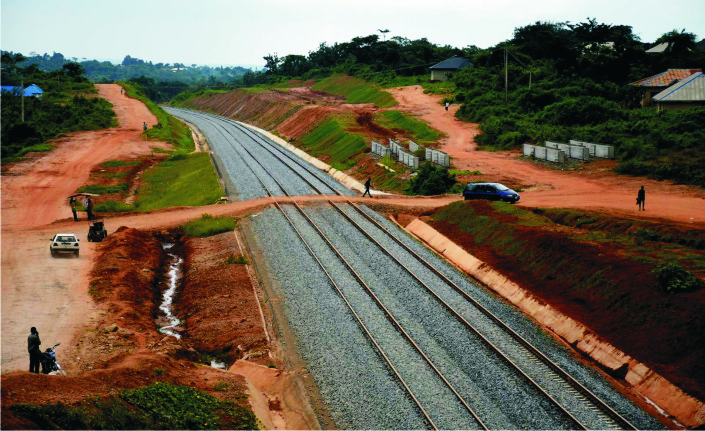Business
Reps Begin Probe Of N19bn 2011 Rail Contract To Ghost Firm

The House of Representatives has resolved to investigate a contract awarded in 2011 for the rehabilitation of the Port Harcourt-Makurdi section of the Eastern Rail Line valued at N19.2bn.
The House is especially probing into the allegation that the contract was awarded to a ghost firm.
The Minority Leader, Ndudi Elumelu, moved a motion of urgent public importance at the plenary on Monday, which was unanimously adopted by the House.
The motion was titled ‘Need to Investigate the N19.2 Billion Railway Rehabilitation Contract Awarded to Eser Contracting and Industry Company Incorporated.’
Elumelu said, “The House notes that Eser Contracting and Industry Company Incorporated was awarded the contract to rehabilitate the 463km Port Harcourt-Makurdi section of the Eastern Railway Line for N19.2bn in March 2011. The railway rehabilitation work was divided into three sections, namely 463km Port Harcourt-Makurdi track, 1016km Makurdi-Kuru track and 640km Kuru-Maiduguri track, and the three sections were awarded to three different companies.
“There are allegations that while carrying out due diligence on Eser Contracting and Industry Company Incorporated, it was discovered that the company was not in existence, as it was not duly registered with the Corporate Affairs Commission.
“The House is worried that the Bureau for Public Procurement failed in its responsibility by issuing a Certificate of No Objection to clear the way for the Railway Corporation to award a job of such magnitude to a company without any legal status.”
The lawmaker alleged that after the contract was awarded, the promoters of the firm devised a way to smoothen the irregularities by registering Eser West Africa Limited in June 2011, three months after the contract had been awarded.
He stressed that the new company had continued dealing with the present-day government officials without any form of questioning on the sudden change of name.
Elumelu said, “The House is disturbed that the contract is now considered failed and abandoned, and there are allegations that the government has gone far with plans to re-award the job to another company without certainties that anyone would be made accountable for the regulatory failures and corporate fraud that characterised the charade.”
Adopting the motion, the House resolved to set up an ad hoc committee to investigate the allegations and report back in four weeks.
Business
NCDMB, Jake Riley Empower 250 Youths On Vocational Skills

Business
NUJ Partners RSIRS On New Tax Law Education

Transport
Nigeria Rates 7th For Visa Application To France —–Schengen Visa

-

 Politics5 days ago
Politics5 days agoPFN Rejects Call For INEC Chairman’s Removal Over Genocide Comments
-

 Rivers5 days ago
Rivers5 days agoFasthire, PHCCIMA, CIPM Host CareerFest 2026 In PH
-

 Sports5 days ago
Sports5 days agoEnekwechi wins Orlen Cup in season opener
-

 Politics5 days ago
Politics5 days agoHoodlums Disrupt LP-ADC Defection Event In Lagos
-

 Sports5 days ago
Sports5 days agoFalconets, Senegalese Lionesses arrive Ibadan for qualifier
-

 Sports5 days ago
Sports5 days agoSimba open Nwabali talks
-

 Politics5 days ago
Politics5 days agoRemoval From INEC’s Portal, Abure-Led LP Faction Mulls Legal Action
-

 Niger Delta5 days ago
Niger Delta5 days agoTinubu, Jonathan, Diri Pay Last Respect To Ewhrudjakpo

